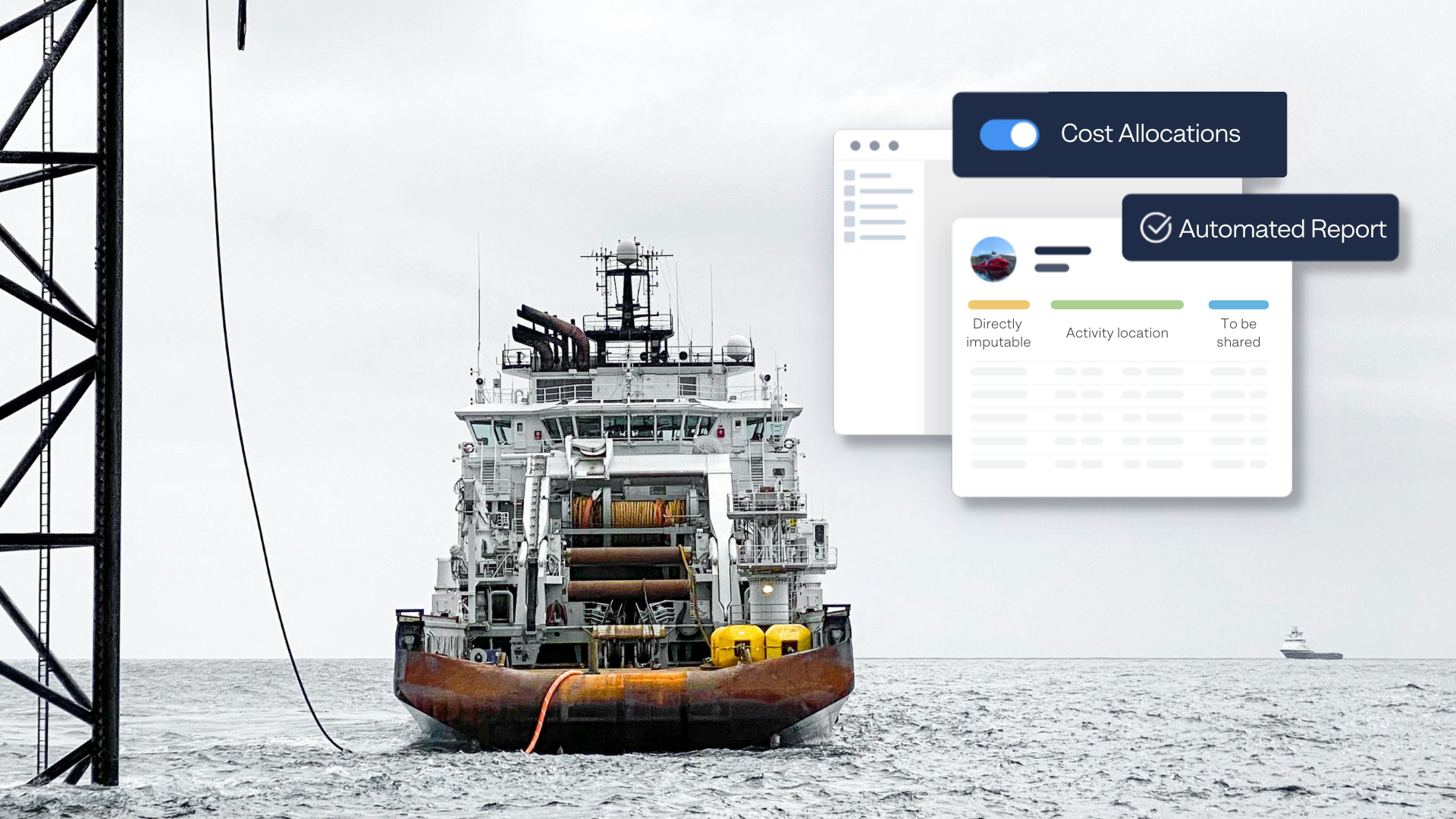Cost allocation in the offshore industry is complex due to varying expenses and operational challenges. Operators and financial departments need clear, precise breakdowns to manage budgets effectively.
This is where digital solutions help. They transform scattered data into actionable insights by integrating vessel daily reports. Cost allocation report simplifies billing by saving time and ensuring clarity. This blog explores how data-driven cost allocation creates efficiency and transparency.
The business case for accurate cost allocation
Cost allocation reports allow charterers to easily visualize the time spent by each vessel at various locations, helping clarify billing processes. It’s assigning expenses to the appropriate asset, block, or client. When done right, it ensures:
- Fair Billing: Entities are charged only for what they consume or require, fostering trust and transparency.
- Claims Prevention: Clear records minimize misunderstandings over unexpected costs.
- Operational Insights: Identifying cost drivers allows operators to optimize their fleet and improve profitability.
Clear, accurate cost allocation helps eliminate inefficiencies, ensuring that activities are tracked and billed appropriately.
Challenges in implementing cost allocation
If cost allocation reports can streamline billing why hasn’t everyone adopted, them yet? The reality is that several challenges often hold operators back, making the transition to digital solutions seem more complex than it is. Here are some of the most common thoughts:
- Lack of digitalization: Many fleets operate without integrated digital systems. Standardizing data and implementing new solutions requires time, resources, and onshore and offshore change management initiatives.
- Crew workload: Manually compiling reports across multiple tools often leads to inconsistencies and errors. This adds unnecessary pressure on crews and complicates cost allocation further.
- Operational complexity: The variability of offshore operations, including different operational profiles, makes tracking and assigning costs a complex process.
- Data quality issues: Inaccurate or incomplete data affects the reliability of reports, making it harder to analyze vessel performance or allocate resources effectively.
These challenges hinder accurate billing and can impact an operator’s ability to analyze costs. However, choosing the right digital partner will help tackle these hurdles, reduce inefficiencies, and streamline the process, making accurate cost allocation accessible for operators.
What you gain with a cost allocation report
Integrated digital solutions like Streamlog’s vessel reporting system combine crew reports and vessel positioning (AIS) to deliver an accurate view of cost allocation. Here’s what you can expect:
✔ Easy and standardized reporting: Digital platforms simplify the crew reporting process by enforcing consistency across all inputs. Standardized reporting ensures data quality, reducing errors and improving compatibility across systems. This leads to more accurate reports, reducing the workload for offshore and onshore teams, including financial departments.
✔ Precise cost allocation: By integrating data into centralized reports, operators can allocate costs precisely, even in complex operational scenarios. Time spent on-hire is split among offshore assets. Offshore, transit and port times are assigned to each asset according to a formula that reflects the activities effectively carried out by the different vessels. This approach ensures accuracy in cost reporting.
✔ Fleet size optimization: By tracking costs for each asset, operators can allocate resources more efficiently and avoid under or over-utilizing vessels. This allows operators to deploy vessels more effectively, minimizing resource waste and ensuring that assets are assigned to operations where they are most needed.
At Opsealog, we understand the challenges onshore and offshore departments face. Our cost allocation reports break down critical information into digestible formats. Time spent on specific assets, the type of operation, and its duration.
From vessel daily report to the accounting department
Digitalization marks the beginning of a transformative journey in offshore operations. It provides the tools and insights necessary to simplify complex processes, foster transparency, and drive efficiency. Cost allocation reports are just one example of what digitalization can bring to the table, streamlining operations across departments.
Transitioning to a digitalized system may seem daunting, but with the right partner, the process becomes a strategic move toward greater efficiency and profitability. At its core, automated reports are about creating a win-win scenario for all stakeholders—where data-driven decisions lead to more effective operations and sustainable growth.
Looking for the right digital partner? Explore how Opsealog’s solutions can simplify your processes and set you on a path toward operational excellence: Book a Demo
Co-written by Hugo Prigent, Senior Account Manager, and Briac Lemée, Business Development Manager at Opsealog.

